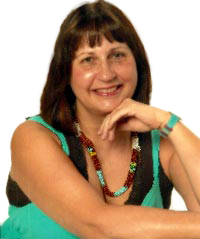"Marsha Jacobson does parents a great favor."
|
A Personal Experience With EQ
July 7th, 2008 ¦ Marsha Jacobson -
When I was a young mother, I noticed that, from an early age, my children were drawn to stories that explored feelings of fear, sadness and anger. I remember clearly, my eldest son, Ilan (now 25) loved a particular book in which a bear accidentally spilled some paint all over the floor. The bear was mortified over what he had done and was scolded for his mistake. Ilan would cry every time we reached this page in the book and was so upset by it, that we had to remove the book from his room, before he could settle down and fall asleep. The very next day he would bring the same book to us and say, “Read, read!” I already had a Masters degree in Clinical Psychology and was familiar with many theories of child development but none of them gave me an adequate explanation. I pondered over the strangeness of this for many years until I began exploring the concept of emotional intelligence. Through reading and life observations, I have come to understand that all emotions are part of our human experience, which we need to understand in order to become strong, emotionally well-rounded adults. In our desire for our children to be happy we forget that happiness, while the most desirable emotion for most people, is only one part of our emotional spectrum. I believe that children intuitively understand that, which ‘grown-ups’ have almost forgotten: that is, ‘negative’ emotions should be acknowledged, accepted and explored as much as positive ones. I believe we underestimate the importance of raising children to have the ability to recognize, understand and react appropriately to their full array of emotions. This ability has been described as emotional intelligence and gives children and adults the strength to cope with the stresses, that life so reliably delivers.
|






